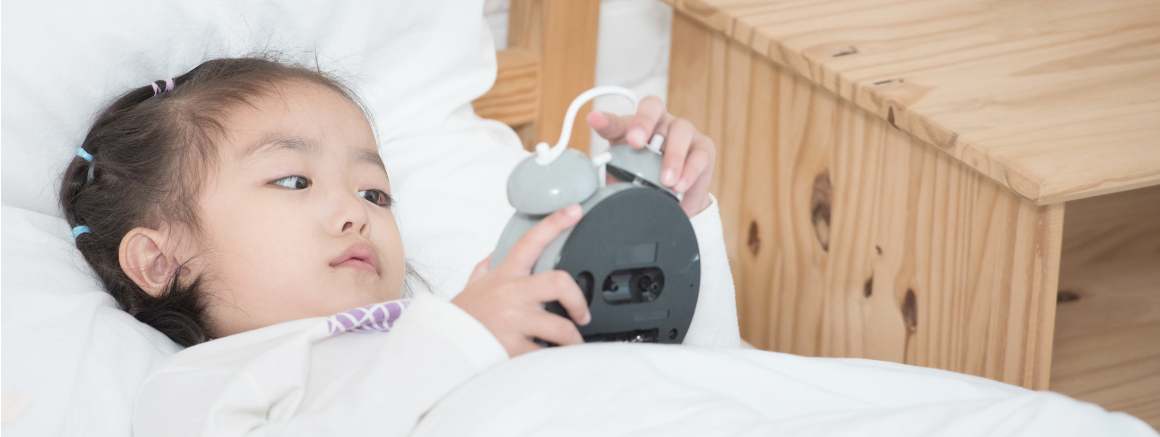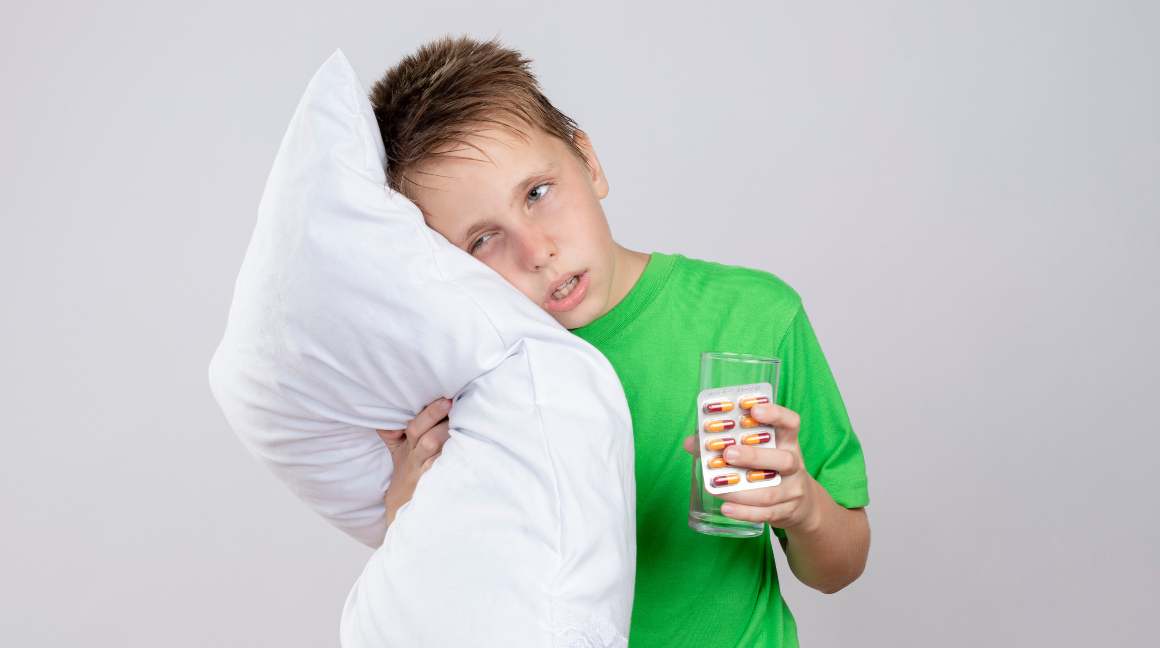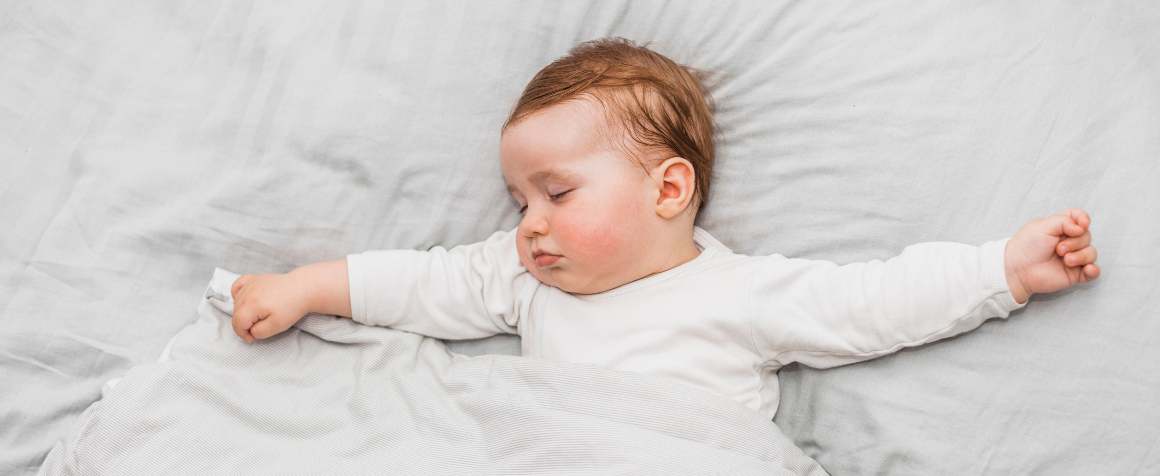Melatonin Dosage for Kids
Published:
Picture this: your child is struggling to fall asleep night after night, and you're considering melatonin dosage for kids as a potential solution.
Contents:
- Melatonin Supplements for Children: A Natural Sleep Aid
- Consultation with Pediatricians
- Establishing Good Bedtime Routines
- Potential Side Effects and Interactions
- Safe Storage and Cautious Use of Melatonin Supplements
-
FAQs in Relation to Melatonin Dosage for Kids
- What is the Recommended Melatonin Dosage for Children?
- Are There Any Potential Side Effects of Taking Melatonin for Kids?
- How Long Does it Take for Melatonin to Work in Children?
- Is it Safe to Give My Child a Higher Dose of Melatonin than Recommended?
- Can I Give My Child an Over-the-Counter Form of Melatonin Instead of a Prescription Medication?
- Conclusion
Melatonin supplements have become increasingly popular among parents seeking a natural way to help their children establish healthy sleep patterns. However, navigating the world of melatonin products can be overwhelming and complex.
In this comprehensive blog post, we will delve into the nuances of melatonin dosage for kids, providing valuable insights on how to safely use these supplements in typically developing children. We'll also explore alternative methods for promoting healthy sleep practices without resorting to supplementation.
From discussing proper consultation with pediatricians and understanding health conditions that may benefit from melatonin ingestion, to choosing reputable brands and establishing consistent bedtime routines - we've got you covered.
So sit back, relax, and let us guide you through the intricate maze of information surrounding safe melatonin usage in children. Together, we'll ensure your little ones get the rest they need while minimizing any risks associated with taking these supplements.

Melatonin Supplements for Children: A Natural Sleep Aid
Let's talk about melatonin, a natural hormone-like substance produced by the pineal gland that can help children feel sleepier before bedtime.
Melatonin supplements are especially helpful for kids with specific health or behavior conditions such as ADHD, autism spectrum disorder (ASD), delayed sleep phase syndrome (DSPS), insomnia due to anxiety or depression, restless leg syndrome (RLS), and shift work disorder.
How Melatonin Works in Promoting Sleep
As the light of day fades, melatonin production in our bodies increases to indicate that it is time for rest and sleep.
As darkness falls, melatonin levels naturally rise in the body to signal it's time for bed. Conversely, they decrease during daylight hours to keep us awake and alert.
Health and Behavioral Conditions Where Melatonin May Be Beneficial
- ADHD: Some studies suggest that taking melatonin may improve sleep quality in children with attention deficit hyperactivity disorder (source).
- Autism Spectrum Disorder: Research indicates that melatonin ingestion can help autistic children who experience difficulty falling or staying asleep (source).
- Anxiety & Depression: For some kids struggling with anxiety or depression-related insomnia, using child-safe melatonin products might be an effective solution (source).
- Restless Leg Syndrome: Although not a cure, melatonin supplements can potentially help alleviate RLS symptoms and improve sleep quality (source).
- Shift Work Disorder: Melatonin helps regulate the circadian rhythm of children whose sleep schedules are disrupted due to their parents' shift work or other irregular routines (source).
In conclusion, it's essential to remember that while melatonin supplements may be beneficial for some kids, they should always be used under the guidance of a child's pediatrician. It's also important to establish healthy sleep practices, such as a consistent bedtime routine, to help typically developing children fall asleep and stay asleep. If you suspect your child has ingested too much melatonin, contact your local poison control center or seek medical attention immediately.
Consultation with Pediatricians
Before diving into the world of melatonin supplements for your child, there's one crucial step to take: consult with your child's pediatrician.
Discussing melatonin usage with a medical professional is essential to ensure that it's safe and appropriate for your little one.
Pediatricians Know Best: The Importance of Their Expertise
A pediatrician will help rule out any serious health problems that may be affecting your child's sleep patterns. Their expert guidance can also prevent potential interactions between melatonin and other medications your kid might be taking.
Finding the Perfect Fit: Factors Considered When Recommending Melatonin Brands
Your child's doctor won't just give you a thumbs up or down on using melatonin - they'll recommend an appropriate brand tailored to their needs too. This includes considering factors such as dosage form (gummies, liquid, tablets), quality control standards, and even flavor preferences.
In conclusion, consulting with a pediatrician before administering melatonin supplements ensures safety while providing valuable insights into which product would work best for your child's unique situation. Remember, healthy sleep practices are crucial for typically developing children, and melatonin can help regulate their circadian rhythm and fall asleep faster. However, it's important to follow the recommended melatonin dosage for kids and avoid overdosing. If you suspect your child has ingested too much melatonin, contact poison control centers or seek medical attention immediately. Behavioral interventions and a consistent bedtime routine can also aid in staying asleep throughout the night.
Determining the Right Dosage
When it comes to melatonin dosage for kids, it's important to remember that less is more. Starting with a low dose - as little as 0.5 milligrams - can be both beneficial and safe for your child. It's crucial to keep in mind that every child is unique and may require adjustments in their melatonin intake under medical supervision. Melatonin supplements come in various forms like gummies, liquid formulations, or dissolvable tablets to cater to individual preferences and needs.
Starting at Low Dosages and Adjusting Accordingly
The key here is patience and close monitoring of your child's response to the supplement. If you notice that the initial low dose isn't helping them fall asleep or stay asleep, consult their pediatrician before increasing it gradually. Maintaining open communication with your child's doctor ensures proper guidance throughout this process while keeping safety top of mind.
Different Forms of Administration
Gummies might be appealing due to their taste but may not always provide optimal results for every child taking melatonin supplements. Liquid formulations offer easier customization when adjusting dosages according to individual needs - making them an excellent alternative option.
Ultimately, the choice of melatonin product should be based on your child's preferences and needs, ensuring a positive experience while promoting healthy sleep practices. Melatonin helps regulate the circadian rhythm, making it easier for children to fall asleep and stay asleep. However, it's important to note that melatonin ingestion should always be done under the guidance of a child's pediatrician. Behavioral interventions and a consistent bedtime routine can also aid in promoting healthy sleep practices for typically developing children.
In case of accidental ingestion of melatonin supplements, contact poison control centers immediately. While melatonin is generally safe, it's always better to err on the side of caution.

Establishing Good Bedtime Routines
Alright, let's dive in.
Melatonin supplements are a great option for improving sleep, but they're not the only solution.
A solid bedtime routine is essential for improving your child's overall quality of life and ensuring a good night's rest.
To establish a successful bedtime routine, try incorporating these simple steps into your child's daily schedule.
- Incorporate calming activities before bed, such as reading or taking a warm bath.
- Stick to a consistent sleep schedule, even on weekends.
- Limit screen time before bed.
- Make sure your child's bedroom is cool, dark, and quiet.
Incorporating these simple steps into your child's daily schedule will make falling asleep much easier - no sheep counting required.
Bonus tip: Encourage open communication with your child about their sleep needs and preferences. This will help you tailor the bedtime routine to suit them best.
Remember, a good night's sleep is essential for your child's overall well-being, so it's important to prioritize healthy sleep practices alongside melatonin supplements when needed.
Now that we've covered establishing an effective bedtime routine, let's move on to potential side effects and interactions of melatonin usage in children.
Potential Side Effects and Interactions
While melatonin is generally considered safe, it's important to be aware of some mild side effects that may occur. Commonly reported issues include dizziness, headache, and nausea. If your child experiences any of these symptoms after taking melatonin, consult their pediatrician for guidance.
Other than adverse effects, there may be possible interactions with other drugs to consider too. For instance, combining melatonin with certain prescription drugs like blood thinners or anticonvulsants could lead to adverse reactions. It's important to be aware of possible medication interactions.
In addition to drug interactions, the effect of blue light on natural melatonin production should not be overlooked. Studies have shown that exposure to blue light from electronic devices can suppress the body's natural production of this sleep-inducing hormone.
- To counteract this issue, encourage your child to avoid screen time at least 1 hour before bedtime.
- You might also consider investing in blue light blocking glasses, which can help reduce the impact on their circadian rhythm.
Maintaining Healthy Sleep Practices While Using Melatonin Supplements
Taking all factors into account when administering melatonin supplements will ensure optimal results for your child's sleep health. Remember to consult with their pediatrician, monitor for side effects and interactions, and establish a consistent bedtime routine that promotes relaxation. By adhering to these steps, you'll be aiding your youngster in attaining the restful sleep necessary for their growth and progress.
Safe Storage and Cautious Use of Melatonin Supplements
First things first, let's talk about safe storage.
Melatonin supplements should be stored securely, away from the reach of children to prevent unintentional ingestion or accidental overdose. Poison control centers have reported cases where kids accidentally consumed melatonin products due to improper storage practices.
Now, onto cautious use.
It is essential to exercise caution when combining melatonin with other sleep aids or administering it without proper consultation with a pediatrician. This is because some interactions between medications can lead to unwanted side effects or reduced effectiveness in treating sleep issues for your child.
Proper Storage Practices for Supplements
- Keep melatonin supplements in their original packaging, which often has child-resistant features.
- Avoid storing them near food items that may attract children's attention like candy or cookies.
- If possible, store them in a locked cabinet out of sight and reach from curious little hands.
- Last but not least: always read and follow the label instructions on dosage and administration carefully.
Risks Associated with Unsupervised Use
- Inadequate supervision could result in an incorrect dosage being administered - too much might cause adverse reactions while too little might not be effective.
- Unsupervised use may lead to a misdiagnosis of the underlying sleep issue, delaying proper treatment and potentially worsening the problem.
- Lastly, relying solely on melatonin without addressing other factors like poor bedtime routines or screen time habits could hinder your child's progress towards healthy sleep practices.
In conclusion, always consult with your child's pediatrician before administering melatonin supplements and practice safe storage methods to ensure their well-being. Remember that melatonin helps regulate the circadian rhythm and can aid in falling and staying asleep, but it should not be the only solution. Behavioral interventions and healthy sleep practices are also crucial for typically developing children.

FAQs in Relation to Melatonin Dosage for Kids
What is the Recommended Melatonin Dosage for Children?
The recommended melatonin dosage for children varies depending on age, weight, and individual needs. Generally, a dose of 0.5 to 1 mg is considered safe for kids aged 4-12 years old. However, it's essential to consult with a pediatrician before giving your child any melatonin supplements.
Are There Any Potential Side Effects of Taking Melatonin for Kids?
Potential side effects of taking melatonin in children include drowsiness, headache, dizziness, nausea, and irritability. Most side effects are mild and temporary, but always monitor your child closely after administering melatonin and report any concerns to their healthcare provider.
How Long Does it Take for Melatonin to Work in Children?
Melatonin typically takes effect within 30 minutes to an hour after ingestion. It's advised that parents give their child the supplement approximately one hour before bedtime to help promote sleep onset.
Is it Safe to Give My Child a Higher Dose of Melatonin than Recommended?
No, giving your child a higher dose than recommended can increase the risk of adverse reactions or dependency issues. Always follow the advice provided by your pediatrician regarding appropriate dosages based on age and weight.
Can I Give My Child an Over-the-Counter Form of Melatonin Instead of a Prescription Medication?
You may find over-the-counter (OTC) forms available; however, it's crucial to discuss this option with your pediatrician first. They will guide you on choosing the right formulation and dosage for your child based on their specific needs.
Conclusion
Melatonin might be a useful resource for guardians who wish to assist their kid's rest. However, it is important to consult with a pediatrician before using any supplements and to choose the appropriate dosage and formulation based on your child's age and weight. Additionally, establishing healthy sleep routines without relying solely on supplements can also promote better sleep habits.













